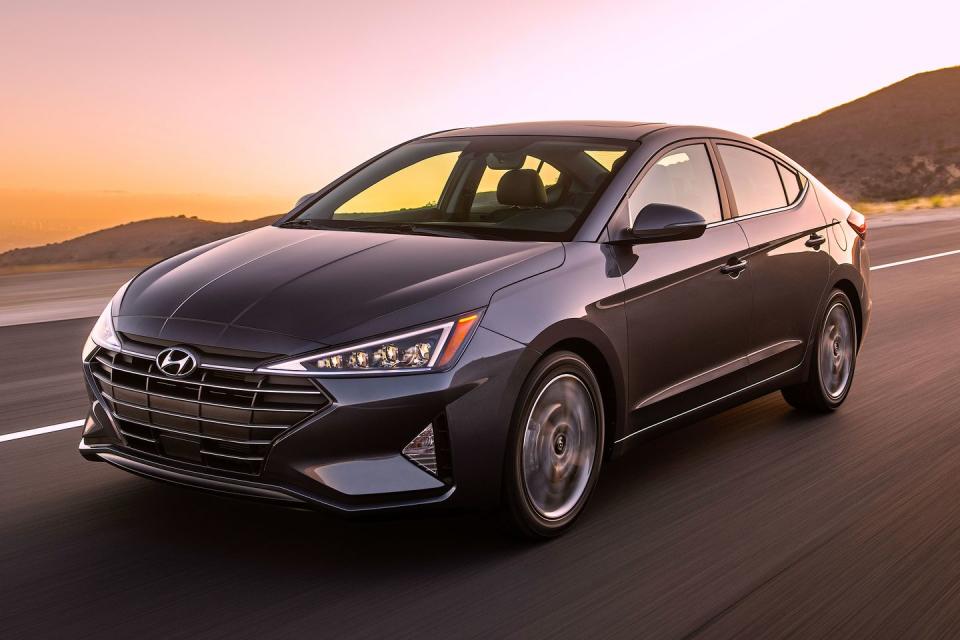Kia and Hyundai under Fire from Cities, Insurers over Too Easily Stolen Vehicles

Kia and Hyundai are the defendants in a new lawsuit with the City of Seattle, which filed a complaint in federal court against the companies for failing to install adequate anti-theft technology in some of their cars.
Cities across the U.S. have seen a sharp rise in the number of Kia and Hyundai vehicles stolen over the past two years, in part aided by a popular TikTok trend.
As a result of the increased thefts, some major insurance providers such as Progressive or State Farm are reportedly refusing to cover affected vehicles in select cities.
Kia and Hyundai continue to feel the effects of the TikTok trend made popular by the so-called "Kia Boyz," which launched an ongoing spike in thefts of vehicles produced by either brand. Vehicles from those manufacturers specifically are targeted because many of their older vehicles lack a critical anti-theft device known as an engine immobilizer, and thieves know they can break rear windows without triggering an alarm system.
Thefts have become so commonplace that there are reports some major insurance providers are refusing to open new policies on affected Kias and Hyundais, while some drivers with existing coverage are paying higher and higher premiums. One resident of a St. Louis suburb began shopping for a new insurance provider when the six-month Geico premium for his 2020 Hyundai Elantra went up by about $200 when he renewed the policy in December—from roughly $600 to $800—according to the St. Louis Post-Dispatch. That same St. Louis resident was denied coverage by Progressive and quoted up to $350 per month by another provider.

Denying coverage or upping the price is becoming the common solution for many insurance agencies. Progressive generates an automatic denial message when Hyundai and Kia owners apply for an online quote in St. Louis and other disproportionately affected areas, according to a Progressive spokesperson speaking to the St. Louis Post-Dispatch. The same report notes that instead of blanket denials, Nationwide and Geico have opted to raise driver premiums on those makes and models.
You may recall from when we covered the issue in the fall that both manufacturers began processes to limit thefts. Kia and Hyundai both are supplying local law enforcement agencies to offer steering wheel locks, and Hyundai began selling Firstech/Compustar security kits, which add immobilizers to vehicles without them. Both companies also made immobilizers standard, with Hyundai making the switch for all vehicles produced as of November 2021, and Kia making the switch for all 2022 model vehicles.
But theft rates have continued to rise, with owners left hoping for a more aggressively useful response from the manufacturers, and a few municipalities are taking the companies to the courts over the issue. Last August, city leaders of St. Louis threatened to sue the brands after the number of Kia and Hyundai theft incidents increased to about 23 per day in August, according to the Post-Dispatch. Seattle took things one step further, filing a complaint in federal court against Kia and Hyundai for failing to install adequate anti-theft technology in some of their cars.
"From last July to this July, we saw a 625 percent increase in Kias and Hyundais stolen in the City of Seattle," said Seattle city attorney Ann Davison, as reported by Fox 13 Seattle. Davison said the thefts have become a public nuisance and accused both companies of knowingly cutting corners.

Ultimately, Davison said she hopes for a widespread recall from each company, which would force the manufacturers to fund the fix and (hopefully) dissuade thieves from continuing to target the vehicles. We reached out to both Hyundai and Kia for comment on the increased pressure from both customers and insurance companies, as well as the new lawsuit. Their responses follow.
"Hyundai believes this lawsuit is improper and unnecessary. In response to increasing thefts targeting our vehicles without push-button ignitions and immobilizing anti-theft devices in the United States, Hyundai Motor America has made engine immobilizers standard on all vehicles produced as of November 2021. Additionally, Hyundai has taken a series of actions to deter thefts of affected vehicles, including an upcoming software update scheduled to be available beginning next month and provided at no cost to customers.
"Hyundai is also providing free steering wheel locks, as available, to select law enforcement agencies across the country, including in the Seattle area, for distribution to local residents who own or lease affected models. Owners may also bring their vehicles to a local Hyundai dealer for the purchase and installation of a customized security kit. We apologize for the inconvenience to affected customers."
Kia offered a similar response, though the company noted that its policy is not to comment on pending litigation.
"Kia remains concerned that criminal actors are targeting certain Kia cars with a steel key and 'turn-to-start' ignition systems. Kia continues to make steering wheel locks available to customers through interested local law enforcement agencies, subject to available supply, at no cost to concerned owners of these vehicles.
"Kia also continues its efforts to develop additional solutions for vehicles not originally equipped with an immobilizer, including the development and testing of enhanced security software designed to restrict operation of the vehicle’s ignition system. Kia has started notifying owners of certain models of the availability of this software upgrade at no cost, and Kia anticipates that it will make software upgrades available for most affected vehicles over the next few months."
You Might Also Like

